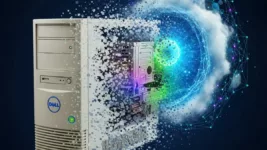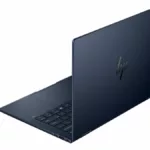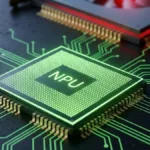A little over two decades ago I was locked in a debate with the head of IBM’s PC division. I argued that it was only a matter of time before Big Blue shed its personal computer business. He was adamant, almost offended, that the company’s then-CEO, Sam Palmisano, would never sell off such an iconic part of IBM. History, of course, proved him wrong. In 2005, IBM’s PC business, including the revered ThinkPad line, was sold to Lenovo. Today, I see a familiar pattern emerging at Dell, and it begs the question: when will the Texas-based tech giant make a similar move?
A Familiar Tune of Disinterest
The parallels between IBM’s declining interest in PCs in the early 2000s and Dell’s current corporate posture are striking. Under Palmisano’s leadership, IBM was shifting its focus to higher-margin enterprise services and software. The PC market was increasingly commoditized and was no longer the growth engine it once was. As Palmisano himself later explained, the PC business was becoming more like the consumer electronics industry, driven by economies of scale and price wars—a different game from the high-value, innovation-centric enterprise solutions IBM wanted to dominate. You can read more about his reasoning in this CNET article from the time.
Fast forward to today where we see Dell Technologies on a similar trajectory. While the company’s Client Solutions Group (CSG), which includes its PC business, still generates significant revenue, the real buzz and strategic focus are clearly on its Infrastructure Solutions Group (ISG). This division, encompassing servers, storage and networking, is at the heart of the current AI gold rush. Dell’s financial reports and investor calls are replete with references to AI-optimized servers and enterprise-grade solutions, while the PC market, even with the recent push for “AI PCs,” feels like a legacy business in comparison.
When Might the Sale Happen?
Speculating on the exact timing of such a monumental business decision is, of course, an exercise in educated guesswork. However, a confluence of factors suggests a potential window within the next three to five years. The current PC market is in a state of flux. The post-pandemic boom has faded, and while a refresh cycle for Windows 11 and the emergence of AI-powered PCs are expected to provide some uplift, the long-term growth prospects for traditional PCs are questionable.
A key trigger for a sale could be the stabilization of the PC market after this transitional period. Dell would likely want to sell the business when it can command the highest possible price, which would mean waiting for the current upgrade cycle to mature. Furthermore, as Dell continues to invest heavily in its enterprise and AI ventures, the financial logic of divesting a lower-margin, albeit still profitable, PC business to fund these higher-growth areas will become increasingly compelling.
Who Might Buy It?
The pool of potential buyers for a business the size of Dell’s PC division is relatively small, but a few logical candidates come to mind.
- Another Asian Electronics Giant: Lenovo’s acquisition of IBM’s PC business set a clear precedent. A company like Samsung or even an ambitious, expanding manufacturer from China could see Dell’s strong brand recognition and established global supply chain as a turnkey solution to becoming a dominant force in the PC market. These companies often have deep pockets and a long-term strategic vision that could accommodate such a large-scale acquisition. There is a growing trend of Asian electronics companies expanding their global reach, and acquiring a major American brand would be a significant step.
- Private Equity: The world of private equity has a voracious appetite for established, cash-generating businesses. A firm could acquire Dell’s PC business, streamline its operations to maximize profitability, and then either take it public again or sell it off in a few years. We’ve seen private equity firms take a growing interest in the tech hardware space, and the Dell brand would be a crown jewel in any portfolio.
- A Consortium of Buyers: Given the scale of the business, a consortium of investors, potentially including a mix of private equity and sovereign wealth funds, could also be a possibility. This would allow for the distribution of risk and the pooling of the immense capital required for such a transaction.
The Oncoming AI Wave and the Post-PC Era
The most significant factor that could accelerate Dell’s departure from the PC business is the transformative potential of artificial intelligence (AI). The very concept of a personal computer as we know it may be on the verge of obsolescence. We are rapidly moving toward a world where AI-powered, client-side solutions become the primary interface for computing.
Imagine devices that are less about local processing power and more about seamless connectivity to powerful, cloud-based AI models. These could take the form of sophisticated thin clients, augmented reality glasses, or even neural interfaces that are more deeply integrated with our daily lives. In such a future, the traditional PC, with its emphasis on a large, local operating system and user-installed applications, could become a relic. The focus will shift from the box on your desk to the intelligence of the network, a domain where Dell’s enterprise-focused ISG is far better positioned to thrive. The conversation is already shifting to what the future of personal computing with AI will look like.
Wrapping Up
The sale of Dell’s PC business is not a matter of “if,” but “when.” The historical precedent set by IBM, Dell’s own strategic pivot towards the enterprise, and the disruptive force of artificial intelligence all point to an inevitable conclusion. Just as IBM shed its PC division to focus on its future, Dell will likely do the same to fully capitalize on the AI revolution. The coming years will be fascinating to watch as the company navigates this transition and a new chapter in the history of personal computing unfolds. The iconic Dell brand on laptops and desktops may one day be a memory, a testament to a bygone era before the true age of AI took hold.








